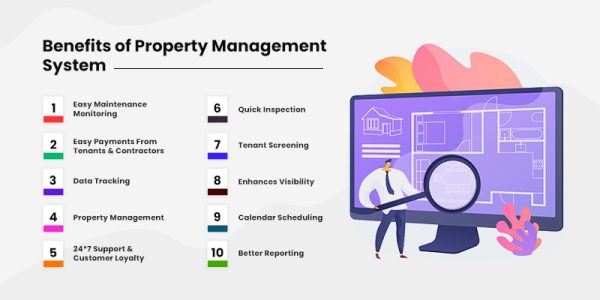Ensuring Reliable Tenants: Best Practices for Background Checks
In the realm of property management, securing trustworthy tenants is essential for maintaining a harmonious and stable rental environment. Effective background checks play a pivotal role in this process, ensuring that property managers make informed decisions while minimizing risks. Best practices for conducting background checks on potential tenants encompass a comprehensive evaluation of their rental history, financial stability, and criminal background. By adhering to these practices, property managers can safeguard their properties, uphold lease agreements, and foster positive tenant-landlord relationships.
Essential Tips for Setting Up Tenant Screening Criteria
Establishing screening criteria for potential tenants involves determining the specific attributes and qualifications you seek in individuals renting your property. Start by considering factors such as creditworthiness, rental history, income level, and any preferences or requirements you have for your rental unit. For example, you might set a minimum credit score threshold, require a certain income-to-rent ratio, or prioritize tenants with a stable rental history. By clearly defining your screening criteria upfront, you can streamline the tenant selection process and ensure that applicants meet the standards necessary for a successful tenancy.
Best Practices for Gaining Tenant Consent for Background Checks
To obtain written consent from potential tenants for conducting background checks, you should provide them with a clear and comprehensive rental application form or a separate authorization document. This document should explicitly state the purpose of the background checks and the types of information that will be collected, such as credit reports, criminal history, and rental references. Ensure that the consent form is easy to understand and includes a signature line for the applicant to acknowledge their agreement. Clearly communicate to the applicant that providing consent is a necessary step in the rental application process and that their application cannot be processed without it. Additionally, inform them of their rights regarding the use and disclosure of their personal information in accordance with privacy laws and regulations. By obtaining written consent in this manner, you demonstrate transparency and respect for the applicant’s privacy while fulfilling your obligations as a landlord to conduct thorough background checks.
Read More About Best Practices for Tenant Screening and Selection
A Step-by-Step Guide to Performing Tenant Credit Checks
Performing a credit check involves several steps to assess an individual’s financial history and creditworthiness. First, gather the necessary information such as the individual’s full name, address, date of birth, and Social Security number. Next, choose a reputable credit reporting agency or bureau to obtain the credit report from. Submit a request for the credit report, ensuring compliance with relevant regulations such as the Fair Credit Reporting Act. Once you receive the report, carefully review it to evaluate the individual’s payment history, outstanding debts, credit utilization, and any derogatory marks.
Use this information to make informed decisions regarding the individual’s creditworthiness, such as approving a loan application or setting terms for a financial agreement. Finally, communicate the results of the credit check to the individual in accordance with applicable laws and regulations, providing them with any necessary disclosures or adverse action notices.
Effective Methods for Verifying a Tenant’s Rental History
Verifying a person’s rental history involves a few key steps to ensure accuracy and reliability. Begin by requesting the individual’s consent to contact their previous landlords or property management companies. Obtain the necessary information such as the addresses of previous residences, dates of tenancy, and landlord contact details. Reach out to these sources and inquire about the individual’s rental history, including their payment punctuality, any lease violations, and their overall conduct as a tenant. Document the responses received from each landlord or property manager for reference. Additionally, consider using rental verification services or online databases to streamline the process and cross-reference information. Finally, compile the gathered information into a comprehensive report to help assess the individual’s suitability as a tenant for your property.
How do I verify someone’s income
Verifying someone’s income typically involves several steps to ensure accuracy and reliability. Begin by requesting the individual’s consent to obtain their financial information, which may include pay stubs, tax returns, or bank statements. If the individual is employed, contact their employer directly to verify their employment status, position, and income. Requesting pay stubs or employment verification forms can provide concrete evidence of their income. If the individual is self-employed or receives income from sources other than traditional employment, review their tax returns and bank statements to assess their income levels over time. Additionally, consider using third-party income verification services that specialize in confirming income information from various sources. Once you’ve gathered the necessary documentation and information, carefully review and cross-reference it to ensure accuracy before making any decisions based on the individual’s income.
Read More About Effective Tenant Retention Strategies
Comprehensive Guide to Conducting Criminal Background Checks on Tenants
Performing a criminal background check involves several steps to gather accurate and comprehensive information about an individual’s criminal history. Begin by obtaining the individual’s consent to conduct the background check, ensuring compliance with relevant laws and regulations. Next, choose a reputable background screening company or access relevant databases to conduct the search. Provide the necessary information about the individual, such as their full name, date of birth, and Social Security number, to facilitate the search process. Review the results carefully, paying attention to any criminal convictions, arrests, or pending charges. Verify the accuracy of the information obtained by cross-referencing it with multiple sources if possible. Finally, adhere to legal requirements regarding the use and dissemination of the background check results, ensuring confidentiality and fair treatment of the individual throughout the process.
Cities where our Tenant Management services are offered :
- Tenant Management in Hyderabad
- Tenant Management in Vijayawada
- Tenant Management in Vizag
- Tenant Management in Guntur
Conclusion:
In conclusion, implementing best practices for conducting background checks on potential tenants is vital for property managers to mitigate risks and ensure the integrity of their rental properties. By thoroughly assessing rental history, financial stability, and criminal backgrounds, property managers can make informed decisions that promote a safe and secure environment for all stakeholders. Additionally, transparent communication with tenants regarding the background check process fosters trust and strengthens the landlord-tenant relationship. By consistently applying these best practices, property managers can streamline their tenant selection process and cultivate a community of reliable and responsible tenants, ultimately contributing to the long-term success of their rental properties.
Related Posts
The Best Residential Plots for Sale in Amaravati
The Best Residential Plots for Sale in Amaravati: A Comprehensive Guide Amaravati, the vibrant capital…
Top Locations for CRDA Approved Plots in Amaravathi
Top Locations for CRDA Approved Plots in Amaravathi Choosing the right location for investing in…
Why Invest in CRDA Approved Plots in Amaravathi
Why Invest in CRDA Approved Plots in Amaravathi Investing in CRDA (Capital Region Development Authority)…
How to Create a Tenant-Friendly Property: Tips for Landlords
Title: Why Invest in CRDA Approved Plots in Amaravathi Investing in CRDA (Capital Region Development…
The Role of Technology in Modern Property Management
Streamlining Property Management: The Impact of Technology in Modern Real Estate In the ever-evolving landscape…
Common Challenges in Tenant Management and How to Overcome Them
Common Challenges in Tenant Management and How to Overcome Them Tenant management is a crucial…
Essential Qualities to Look for in a Property Management Company
Essential Qualities to Look for in a Property Management Company Choosing the right property management…
Tips for Building a Strong Community in Multi-Family Rental Properties
10 Proven Strategies for Cultivating a Thriving Community in Multi-Family Rental Properties In the realm…
Best Practices for Conducting Background Checks on Potential Tenants
Ensuring Reliable Tenants: Best Practices for Background Checks In the realm of property management, securing…
Integrating Advanced Tech in Property Management
Integrating Advanced Technology into Property Management Services for Enhanced Efficiency In an era defined by…
Cost-Effective Solutions for Managing Maintenance in Property Management Services
Cost-Effective Solutions for Managing Maintenance in Property Management Services. In the realm of property management…
The Role of Property Management in Community Living
The Role of Property Management in Community Living Property management plays a pivotal role in…
Effective Tenant Retention Strategies
Effective Tenant Retention Strategies Effective tenant retention strategies are essential for landlords and property…
Benefits of Professional Property Management for Overseas Investors.
Benefits of Professional Property Management for Overseas Investors. Professional property management offers invaluable benefits for overseas…
The Future of Real Estate: Trends in Property Management
The Future of Real Estate: Trends in Property Management The future of real estate holds…

















